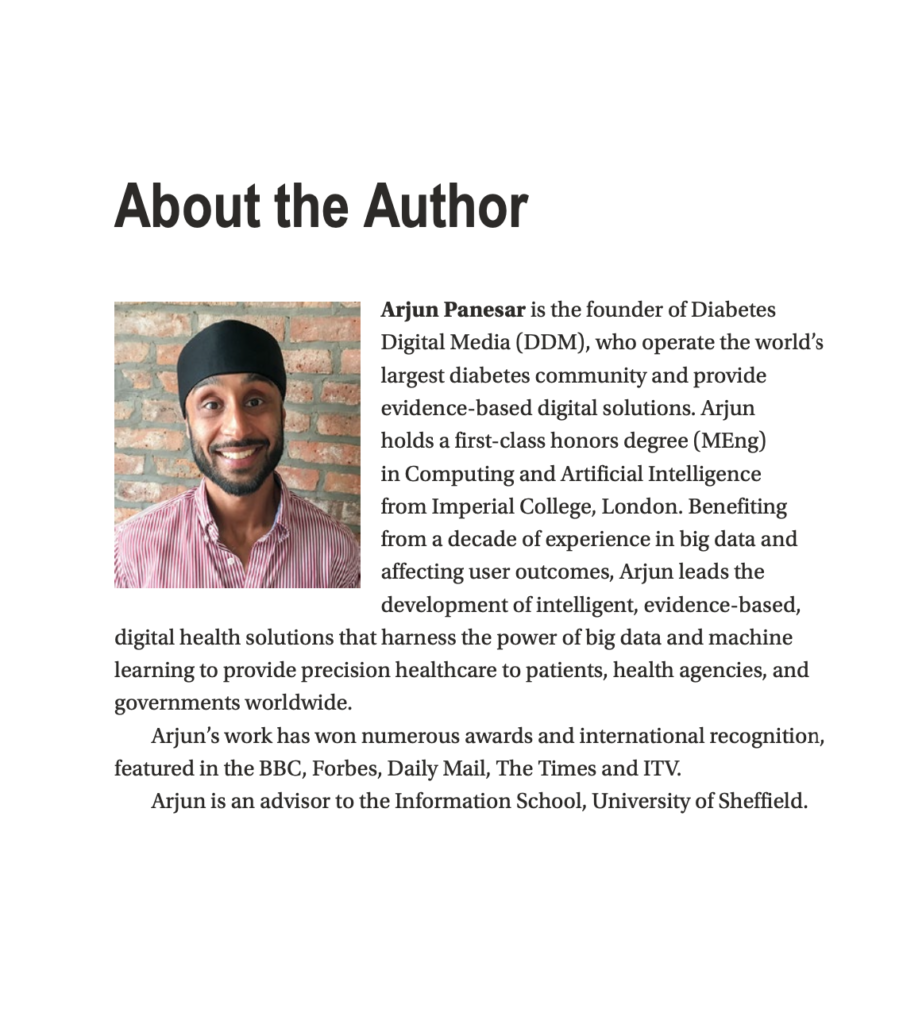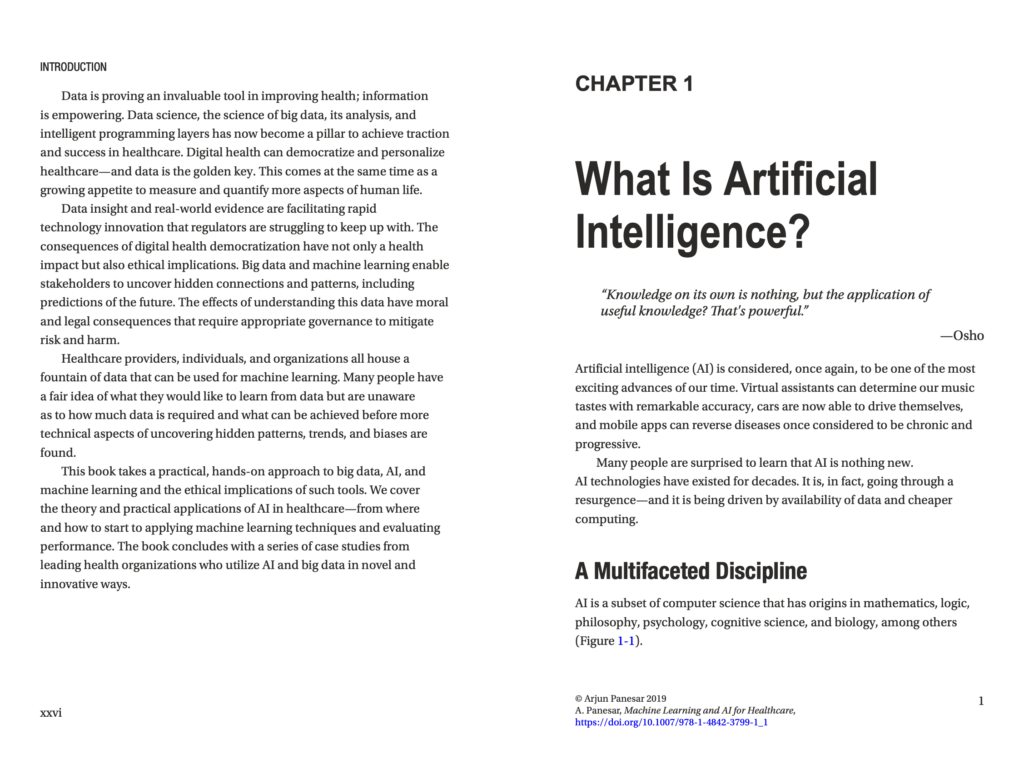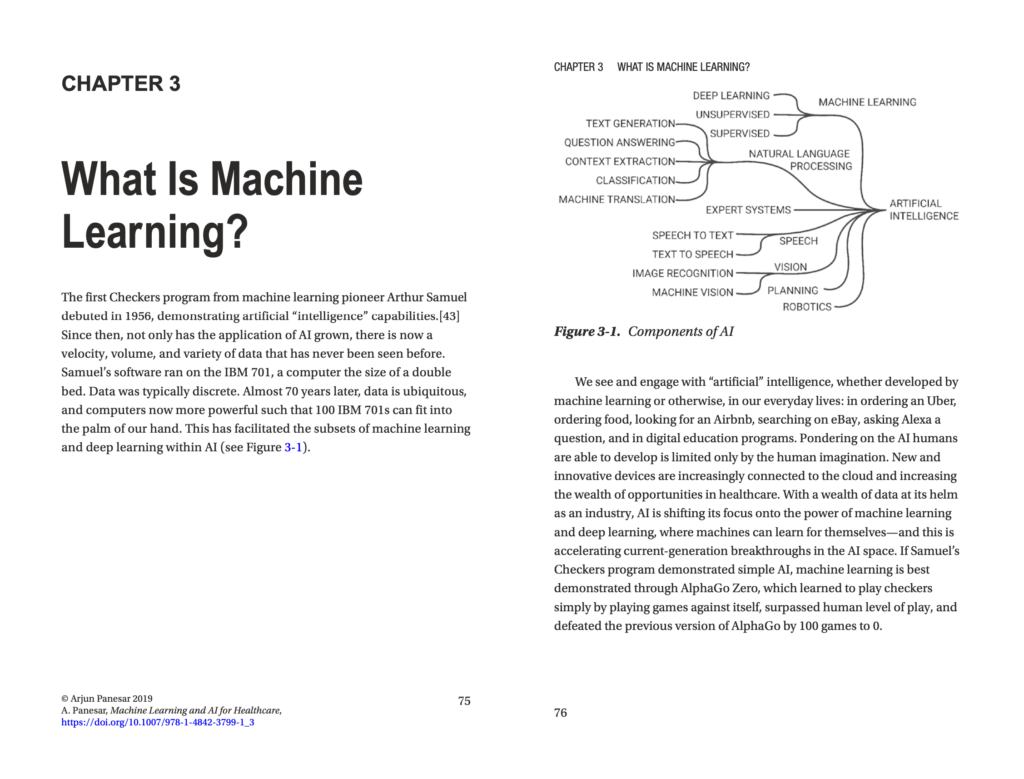
INTRODUCTION
The world is changing. There are more phones than people in the world, and it is increasingly connected. People use virtual assistants, self-driving cars, find partners through digital apps, and search the Web for any symptom of ill health. Each digital event leaves a digital exhaust that is datafying life as we know it. The success of many of the world’s most loved services, from Google to Uber, Alexa to Netflix, is grounded in big data and optimization.
Although medicine has been receptive to the benefits of big data and AI, it has been slow to adopt the rapidly evolving technology, particularly when compared to sectors such as finance, entertainment, and transport: that is, until now.
Recent digital disruption has catalyzed healthcare's adoption of big data and AI. Data of all sorts, shapes, and sizes are used to train AI technologies that facilitate machines to learn, adapt, and improve on their learning. Academic institutions and start-ups alike are developing rapid prototype technologies with increasingly robust health and engagement claims. The blending of technology and medicine has been expedited by smartphones and the Internet of Things, which is facilitating a wealth of innovation that continues to improve lives. With the arrival of health technology, people can monitor their health without the assistance of a healthcare professional; healthcare is now mobile and no longer in the waiting room.
At the same time, the world’s population is living longer, and unhealthier, than ever: and in a financial crisis. Healthcare services are turning to value-based and incentivized care as non-communicable diseases such as type 2 diabetes and obesity become global pandemics.
Data is proving an invaluable tool in improving health; information is empowering. Data science, the science of big data, its analysis, and intelligent programming layers has now become a pillar to achieve traction and success in healthcare. Digital health can democratize and personalize healthcare—and data is the golden key. This comes at the same time as a growing appetite to measure and quantify more aspects of human life.
Data insight and real-world evidence are facilitating rapid technology innovation that regulators are struggling to keep up with. The consequences of digital health democratization have not only a health impact but also ethical implications. Big data and machine learning enable stakeholders to uncover hidden connections and patterns, including predictions of the future. The effects of understanding this data have moral and legal consequences that require appropriate governance to mitigate risk and harm.
Healthcare providers, individuals, and organizations all house a fountain of data that can be used for machine learning. Many people have a fair idea of what they would like to learn from data but are unaware as to how much data is required and what can be achieved before more technical aspects of uncovering hidden patterns, trends, and biases are found.
This book takes a practical, hands-on approach to big data, AI, and machine learning and the ethical implications of such tools. We cover the theory and practical applications of AI in healthcare from where and how to start to applying machine learning techniques and evaluating performance. The book concludes with a series of case studies from leading health organizations who utilize AI and big data in novel and innovative ways.
AUTHOR




Download Ebook

